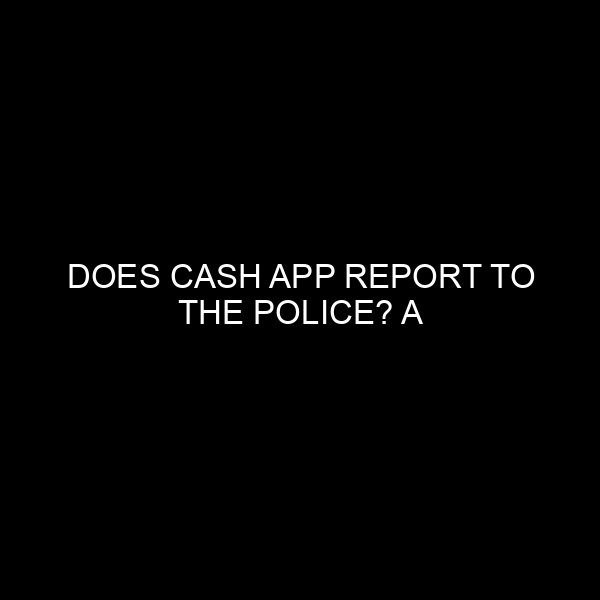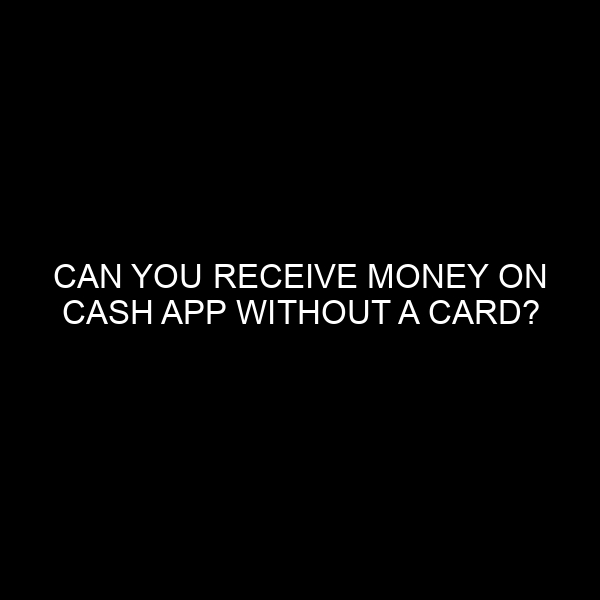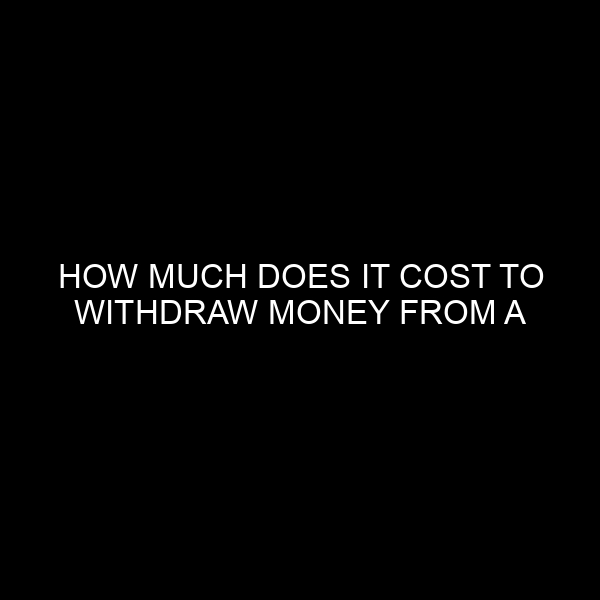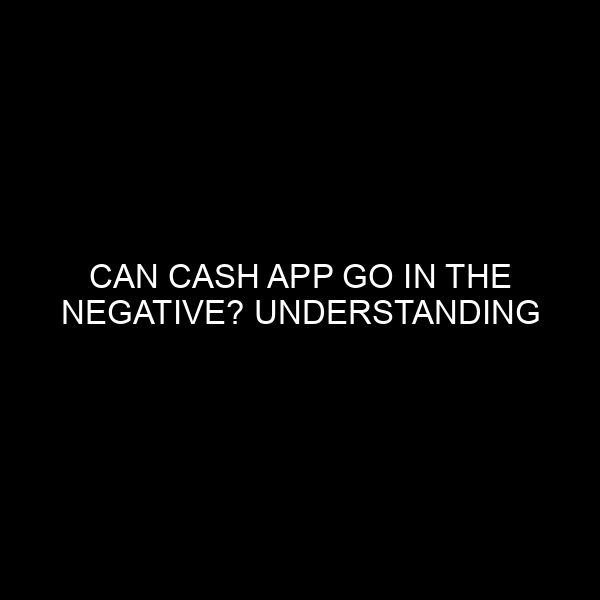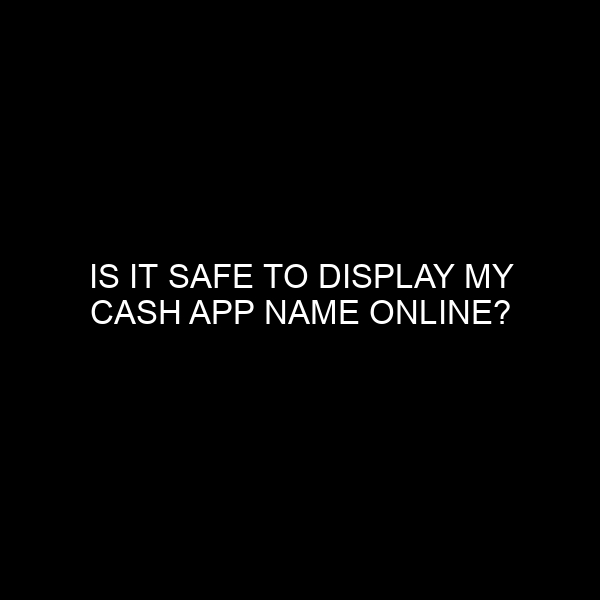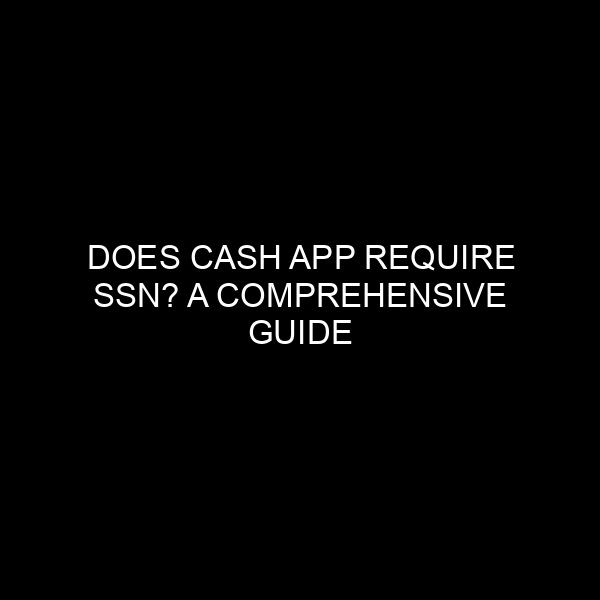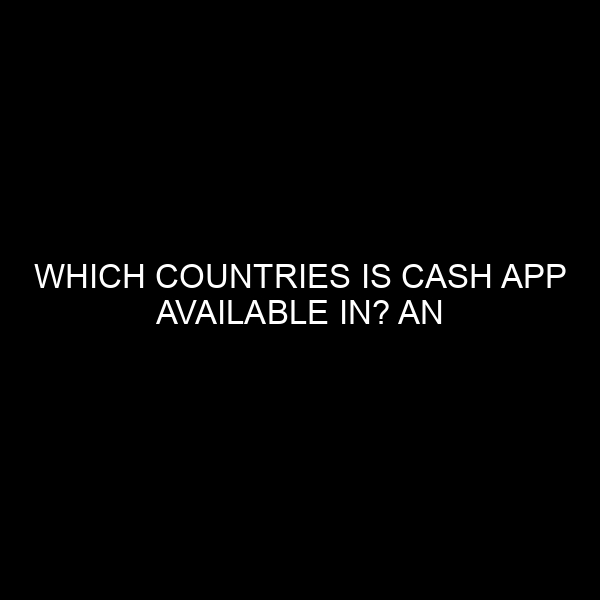Does Cash App Report to the Police? A Comprehensive Look
In today’s digital age, mobile payment platforms like Cash App have revolutionized how individuals send and receive money. With convenience at its core, questions about the safety and privacy of transactions have arisen. One of the pressing questions users often ask is, “Does Cash App report to the police?” As someone with a solid background in the financial market and banking industry, I’ve delved into this topic to provide an in-depth answer to this query.
Introduction: The Digital Landscape of Payments
With the rise of smartphones and digital connectivity, applications like Cash App by Square, Inc. have made it possible for users to swiftly send and receive money, purchase stocks, or even buy Bitcoin. The interface’s simplicity is its strongest appeal, as users just need a link to their bank account or a debit card. Yet, with all this ease of use, there are natural concerns about security, fraud, and, most importantly, the privacy of transactions.
Cash App and Law Enforcement: The Facts
1. Compliance with Regulations
As a registered money services business, Cash App is obligated to comply with specific regulations set forth by government agencies such as the Financial Crimes Enforcement Network (FinCEN). This compliance is essential in combating fraud, money laundering, and other financial crimes. If a transaction is suspected of being related to illegal activities, Cash App may be required to report it to the appropriate authorities.
2. Suspicious Activity Reporting (SAR)
Financial institutions, including Cash App, are obligated to file Suspicious Activity Reports (SARs) for any transactions that are suspected of being related to criminal activities or violate the known business model of the customer. The filing of an SAR doesn’t directly imply the user’s guilt; rather, it’s a preventive measure to ensure the financial system remains trustworthy.
3. User Agreement and Privacy Policy
Upon signing up, users are typically made aware of the app’s user agreement and privacy policy. These documents make it clear that while Cash App prioritizes user privacy, they will cooperate with law enforcement agencies if presented with a valid subpoena, court order, or similar legal mandate.
The Limits of Reporting: What Cash App Doesn’t Do
It’s crucial to understand that Cash App doesn’t proactively police transactions or report every transaction to the authorities. Here’s what Cash App generally doesn’t do:
1. Report Every Transaction
Cash App processes millions of transactions daily. It’s neither practical nor required for them to report every transaction to the police. They’re more focused on transactions that appear suspicious or violate their terms of service.
2. Disclose Information Without Legal Mandate
Cash App will not disclose your transaction details to the police or any other party without a legal requirement to do so. They prioritize user privacy, and without a valid legal reason, your data remains protected.
3. Track Personal Spending
While Cash App has algorithms to detect suspicious activities, it doesn’t have an agenda to track or report personal spending habits of its users to law enforcement agencies unless it’s related to suspected illegal activities.
Safeguarding Your Cash App Experience
To ensure that your experience with Cash App remains smooth and devoid of any complications, consider the following tips:
1. Use Real and Valid Information
Always provide accurate details when setting up your account. Using fictitious information can trigger the system’s suspicious activity protocols.
2. Be Wary of Scams
Cash App transactions are instant and, often, irreversible. Avoid sending money to unknown parties or falling for common scams, such as requests for advance payments.
3. Regularly Review Your Transaction History
Regularly review your transaction history to spot any unauthorized or suspicious activities. If you notice anything out of the ordinary, report it immediately.
Conclusion
The rapid digitalization of financial transactions brings with it a host of benefits, but it also presents challenges regarding security and privacy. Cash App, like many financial platforms, has measures in place to combat illegal activities and to cooperate with law enforcement when necessary.
Users can be assured that while Cash App does have a responsibility to report suspicious activities to relevant authorities, it does not act as an omnipresent watchdog over every transaction. The goal is to maintain a secure platform, not to police personal financial activities. Remember, the best way to avoid any complications is to use the platform responsibly and stay informed about its terms and user policies.
